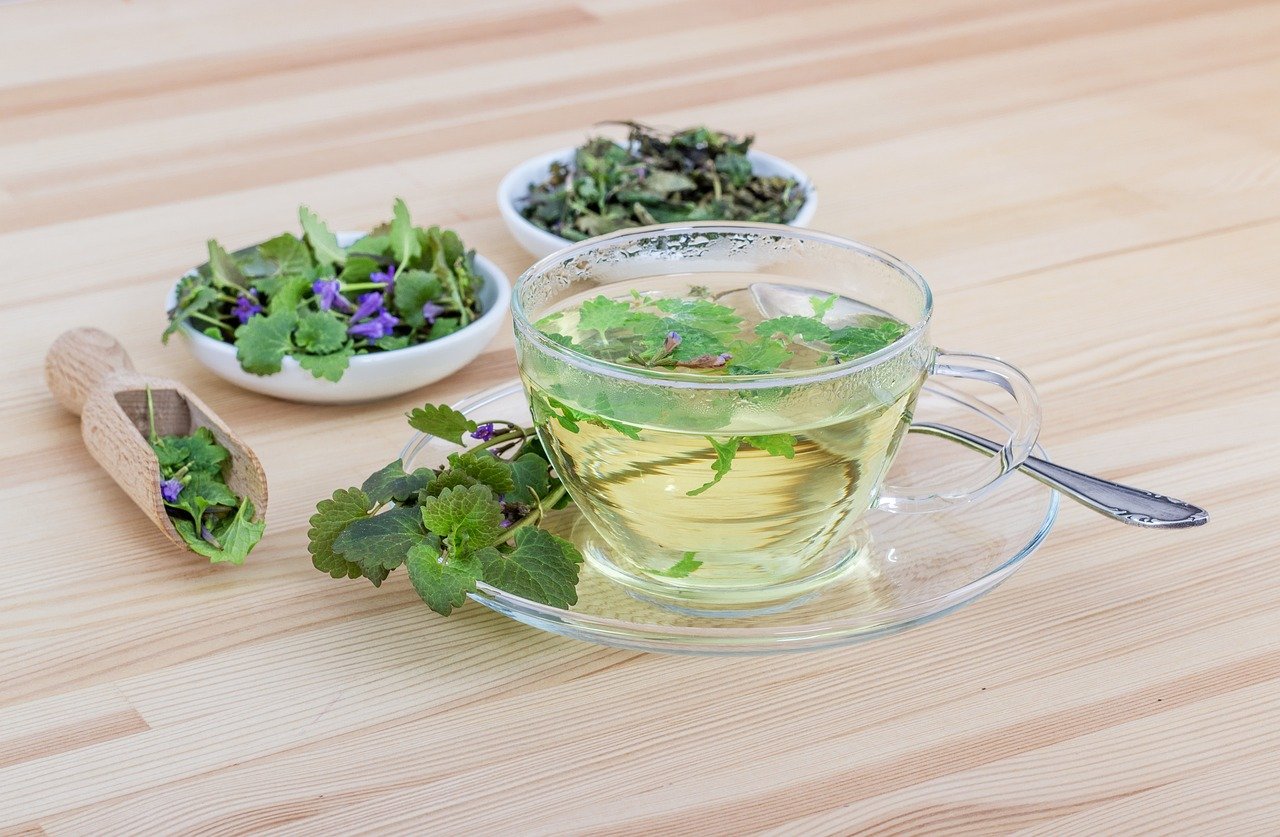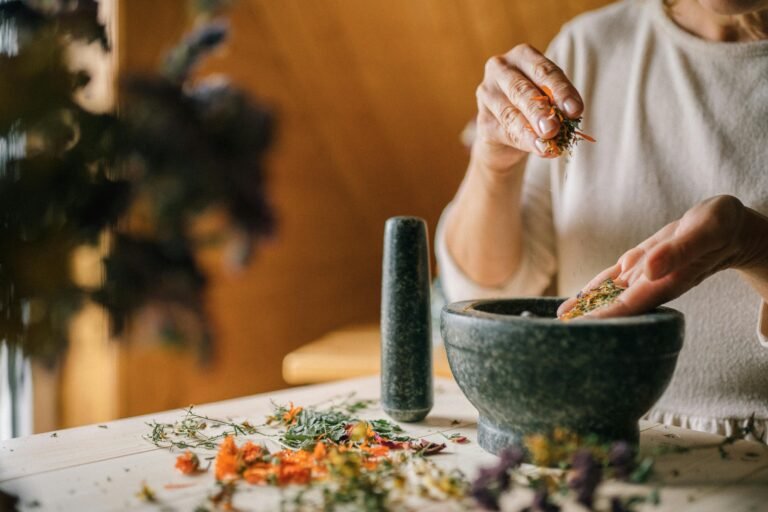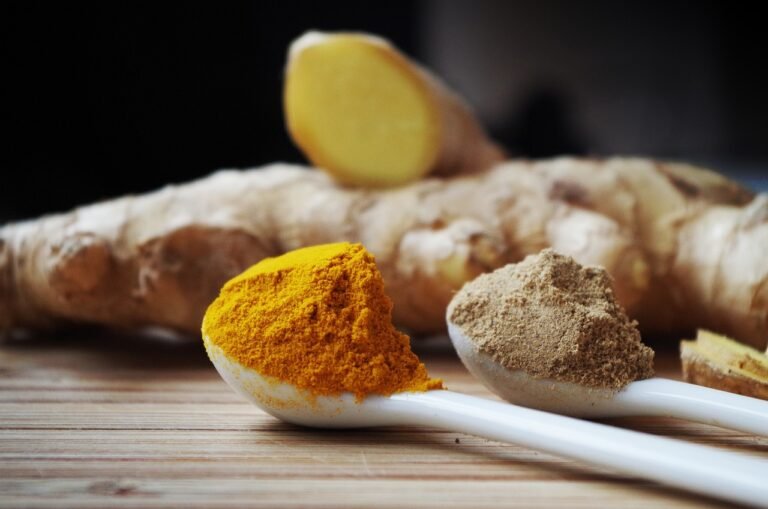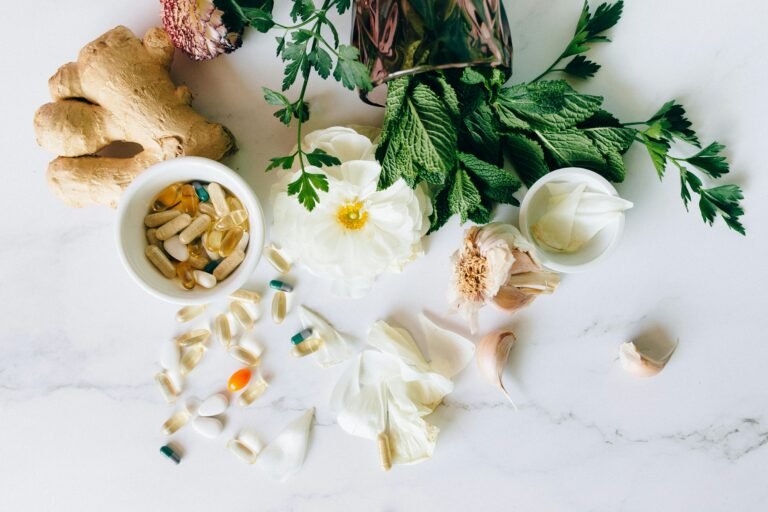9 Herbal Remedy Essentials Every Home Should Have
As someone who grew up in a family that swore by natural remedies, I can attest to the incredible benefits of herbal medicine. From alleviating cold symptoms to treating acne and stomachaches, herbs have been my go-to solution for years. Now, as a parent myself, I use these natural wonders to keep my children healthy and happy. In this blog post, we’ll explore the 9 essential herbal remedies that every home should have. We will also cover how to incorporate them into your daily lives as well as how to create a custom herbal remedy kit.

- 9 Essential Herbs for a Home Remedy Kit
- 1. Aloe Vera for Burns and Skin Irritations
- 2. Chamomile for Stress and Sleep
- 3. Elderberry: The Immunity Booster
- 4. Calendula: The Skin Savior
- 5. Ginger: The Digestive Aid
- 6. Peppermint: The Respiratory Rescue
- 7. Echinacea: The Infection Fighter
- 8. Turmeric: The Anti-Inflammatory
- 9. Honey: The Cough Suppressant
- Incorporating Herbal Remedies into Your Daily Life
- Safety Precautions and Contraindications
- Creating a Custom Herbal Remedy Kit
- FAQs
9 Essential Herbs for a Home Remedy Kit
1. Aloe Vera for Burns and Skin Irritations
Aloe vera is a must-have in any herbal remedy kit. This wonder plant possess soothing properties that can work magic on burns and skin irritations. With its gel-like, cool interior, it provides instant relief. Whether it’s a minor burn or just an itchy rash, aloe vera can be your go-to. It’s simple to use, too. Break off a leaf, extract the gel, and apply it to the affected area. Instant relief! Aloe vera also has anti-inflammatory properties, making it perfect for calming irritated skin. [Source: WebMD]
2. Chamomile for Stress and Sleep
We all have those restless nights when sleep seems impossible. Chamomile can be your natural lullaby. Its calming effects are widely recognized. It soothes both the mind and body. A cup of chamomile tea before bed can be as comforting as a mother’s hug. The gentle aroma and mild taste help you unwind and set the stage for a peaceful sleep. Chamomile is a natural remedy for stress too. Next time you’re feeling frazzled, sip on some chamomile and feel the tension melt away. [Source: Healthline]
3. Elderberry: The Immunity Booster
I swear by elderberry for my kids during flu season. Rich in antioxidants, elderberry has been shown to reduce the severity and duration of cold and flu symptoms. Echinacea, which I mentioned below in #7 and elderberry are powerhouses for immune support. They act like a shield, ready to fend off those pesky viruses. Echinacea enhances immune function and reduces cold symptoms, while elderberry can cut flu duration in half. Incorporate these best herbal remedies into your routine at the first sign of sniffles, and you’re good to go.

Family-Friendly Immune Boosters for Adults and Kids: Our delicious elderberry syrup supports the immune system for the whole family; easy-to-take liquid form for convenient use; enjoy the antioxidant benefits by adding to any beverage, ensuring everyone from ages one and up gets their daily dose of immune support.
4. Calendula: The Skin Savior
Calendula oil is a staple in my home. Its anti-inflammatory properties make it perfect for soothing skin irritations, from minor cuts to eczema. It is also amazing for massage, lubrication and similar topical uses.
5. Ginger: The Digestive Aid
Ginger has been my trusted ally in fighting stomachaches and nausea. Its anti-inflammatory compounds ease digestive issues and reduce inflammation. Peppermint is another rescue! These medicinal herbs are saviors for digestive woes. Ginger, with its zingy warmth, relieves nausea and improves digestion. Peppermint, on the other hand, soothes an upset stomach like a calming breeze. Brew them into teas or use as tinctures to ease your digestive issues naturally. They’re the herbal remedy world’s answer to a soothing pat on the back. [Source: NHS]

Digestive Tea: Help soothe your stomach and unwind with a warm and comforting cup of Yogi Stomach Ease tea, enjoyable any time of day or night
6. Peppermint: The Respiratory Rescue
Peppermint oil is a natural decongestant, providing instant relief from congestion and coughs.

100% PURE & NATURAL PEPPERMINT OIL
7. Echinacea: The Infection Fighter
Echinacea is my go-to herb for boosting immunity and combating infections. I like to put a few drops of the Echinacea oil into my coffee or tea to keep sickness away. It works incredible for allergies and colds, and never disappoints.

Supports healthy function of the immune system*
A proprietary blend of the certified organic extracts of four different Echinacea purpurea plants parts
Rapidly absorbed liquid extract
Gluten-free and non-GMO
Herb potency assured through High Performance Thin Layer Chromatography (HPTLC) analysis.
8. Turmeric: The Anti-Inflammatory
Turmeric’s active compound, curcumin, reduces inflammation and alleviates joint pain. The Garden of Life Organics Extra strength Turmeric Tablets has an excellent ingredient list and is a great price point. This is one of my favorites to recommend as it can be helpful for all kinds of inflammation and chronic pain.

Supports the body’s healthy inflammatory function and antioxidant response
9. Honey: The Cough Suppressant
Raw honey is a natural cough syrup, soothing sore throats and calming coughs. For my kids, I always use Zarbee’s. For myself, I prefer Manuka Doctor Cough Drops. They are very effective and best of all, much safer.

We are the only honey company globally to carry the “Certified R.A.W” Certification mark.

#1 PEDIATRICIAN RECOMMENDED: Developed by a father and pediatrician, Zarbee’s is the cough syrup brand recommended most by pediatricians for babies and children 12 and under.
Incorporating Herbal Remedies into Your Daily Life
Teas and Infusions
Herbal teas are an excellent way to reap the benefits of herbs. From peppermint to chamomile, there’s a tea for every ailment.
Tinctures and Oils
Tinctures and oils offer concentrated doses of herbs. Use them topically or add them to food and drinks.
Capsules and Supplements
For convenience, consider herbal capsules or supplements.
Safety Precautions and Contraindications
While herbal remedies are generally safe, it’s essential to:
Consult a Healthcare Professional
Especially if you’re pregnant, breastfeeding, or taking medications.
Start with Small Doses
Gradually increase dosages to gauge tolerance.
Be Aware of Allergies
Monitor for allergic reactions and interactions.
Creating a Custom Herbal Remedy Kit
What to Include in a DIY Herbal First Aid Kit
Building your own herbal first aid kit is like crafting a survival kit for life’s unexpected ailments. You can start with basics like aloe vera gel for burns, chamomile for stress, and ginger for nausea. Then, add witch hazel for its astringent properties, and lavender oil for its calming scent. Don’t forget calendula salve for cuts and scrapes. This kit, tailored to your needs, ensures you’re ready to tackle life’s little hiccups with confidence. It’s like having a personalized herbal toolbox at your disposal. [Source: Herbal Academy]
Choosing the Right Herbs for Your Family’s Needs
Selecting herbs for your family involves understanding each one’s unique needs. Consider ailments you frequently encounter. For example, if stress is your frequent foe, chamomile should be your first pick. If colds hit your household often, fill your kit with elderberry and echinacea. Tailoring your selection to your family’s needs ensures you have the most effective herbal treatment ready. It’s like curating a personal health playlist. [Source: Mother Earth Living]
FAQs
What are the best herbal remedies for headaches?
Peppermint and feverfew are great for relieving headaches. Apply peppermint oil to your temples for a cooling effect. Feverfew can be taken as tea or supplements to reduce headache frequency.
Can herbal remedies be used alongside medications?
Yes, but consult with a healthcare provider first. Some herbs might interact with medications, so it’s essential to ensure safety.
Are herbal tinctures effective?
Absolutely! Tinctures are concentrated extracts, making them potent and fast-acting. They are convenient for dosage and absorption.
How often should herbal remedies be used?
Usage depends on the specific herb and condition. Some, like chamomile tea, can be enjoyed daily, while others might be more occasional. Always follow guidelines or professional advice.
Can children use herbal remedies?
Many herbal remedies are safe for children, but adjust dosages for age and weight. Always consult a pediatrician when introducing new remedies.
Sources:
- [WebMD source](https://www.webmd.com/a-to-z-guides/aloe-vera-uses-and-risks)
- [Healthline source](https://www.healthline.com/nutrition/benefits-of-chamomile-tea)
- [NHS source](https://www.nhs.uk/conditions/indigestion/)
- [Herbal Academy source](https://theherbalacademy.com/diy-herbal-first-aid-kit/)
- [Mother Earth Living source](https://www.motherearthliving.com/health-and-wellness/herbal-remedies)





